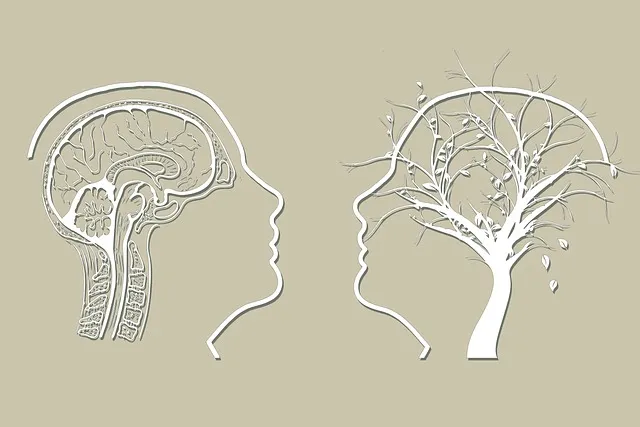Emotional intelligence (EQ) is vital for professionals in Kaiser Permanente mental health roles in Parker, enhancing communication and client care through emotional recognition and understanding. Strong EQ enables workers to manage crises, support mood regulation, and conduct nuanced risk assessments by considering emotional states and contexts. Strategies to foster EQ include cultural sensitivity, emotional regulation training, and depression prevention techniques, leading to improved job satisfaction and retention. Building EI starts with self-awareness and empathy-focused interactions, contributing to a supportive organizational culture and reducing mental health stigma in Kaiser Permanente's Parker mental health jobs.
Emotional intelligence (EQ) is a powerful tool for personal and professional growth, especially in today’s fast-paced work environment. This article explores the concept of EQ through the lens of Kaiser Permanente’s mental health perspective, offering insights into its importance for well-being and success. We delve into practical strategies to nurture EQ at work, using Parker’s story as a case study, and provide everyday tools to enhance emotional intelligence, empowering individuals to thrive in their personal and professional lives, much like those in fulfilling Kaiser Permanente mental health jobs.
- Understanding Emotional Intelligence: The Kaiser Permanente Mental Health Perspective
- Nurturing EQ in the Workplace: Strategies for Parker's Success
- Practical Tools for Enhancing Emotional Intelligence in Daily Life
Understanding Emotional Intelligence: The Kaiser Permanente Mental Health Perspective

Emotional intelligence (EQ) is a cornerstone of effective communication and interpersonal relationships, making it an invaluable skill set for professionals in various fields, including those pursuing Kaiser Permanente mental health jobs in Parker. The Kaiser Permanente perspective on mental health emphasizes not just treating symptoms but fostering resilience and emotional well-being among individuals and communities. This holistic approach underscores the importance of EQ, as mental health professionals must navigate complex interpersonal dynamics to provide compassionate and tailored care.
Understanding EQ involves recognizing one’s own emotions and those of others, using this awareness to guide thoughts and actions, and managing and adapting to different situations with emotional flexibility. Key components like Crisis Intervention Guidance, Mood Management, and Risk Assessment for Mental Health Professionals are all underpinned by strong EQ. These skills enable professionals to de-escalate crises, support clients in regulating their moods, and conduct thorough risk assessments that consider not just symptoms but the client’s emotional landscape and social context.
Nurturing EQ in the Workplace: Strategies for Parker's Success

At Kaiser Permanente, fostering emotional intelligence (EQ) is crucial for creating a supportive and successful environment, especially within mental health jobs in Parker. Implementing strategies to enhance EQ among staff benefits both patients and practitioners. One key approach involves encouraging cultural sensitivity in mental healthcare practice. By promoting understanding and appreciation of diverse backgrounds, cultures, and perspectives, Kaiser Permanente ensures that its team members can connect with a wide range of patients on a deeper level. This fosters trust and creates an inclusive atmosphere, which is essential for effective therapy.
Additionally, focusing on emotional regulation skills empowers employees to manage their own emotions and respond sensitively to clients’ needs. Training in depression prevention techniques also plays a vital role in Parker’s mental health jobs at Kaiser Permanente. Equipping staff with tools to recognize and address depressive symptoms not only benefits individual practitioners but also contributes to a more proactive approach to patient care, ultimately enhancing overall job satisfaction and retention rates.
Practical Tools for Enhancing Emotional Intelligence in Daily Life

Building emotional intelligence is a powerful skill set that can greatly benefit individuals and organizations alike. For those seeking career paths in mental health, such as Kaiser Permanente mental health jobs in Parker, understanding and cultivating emotional intelligence is an invaluable asset. This starts with self-awareness—recognizing and labeling your emotions accurately. Simple practices like journaling or mindful meditation can help individuals connect with their feelings and gain insights into triggers and patterns.
Additionally, empathy building strategies play a crucial role in enhancing emotional intelligence. Actively listening to others, asking open-ended questions, and validating their experiences foster deeper connections and understanding. Stress management workshops within organizations often incorporate these techniques, aiming to reduce the Mental Illness Stigma Reduction Efforts while promoting a more supportive work environment. By integrating such practices into daily routines, individuals can improve not only their personal relationships but also contribute to a healthier organizational culture.
Emotional intelligence is a vital skill set that enriches both personal and professional lives, as highlighted by Kaiser Permanente’s commitment to mental health. By understanding and nurturing emotional intelligence in the workplace, organizations like Parker can foster a more supportive and productive environment. The practical tools discussed in this article offer accessible ways to enhance EQ in daily life, benefiting individuals seeking fulfilling careers in mental health fields or those simply looking to improve their interpersonal connections and overall well-being.






